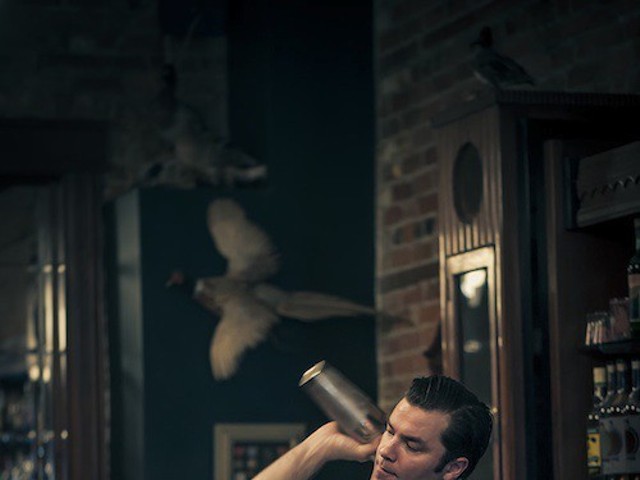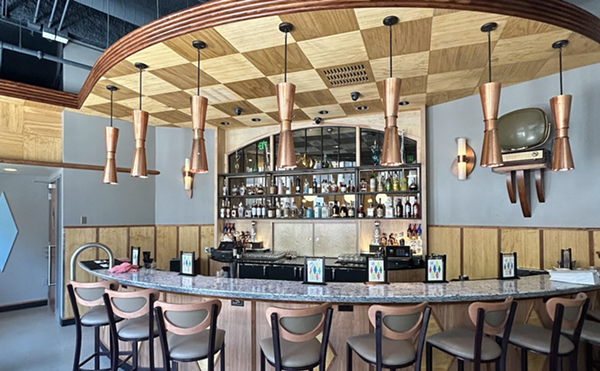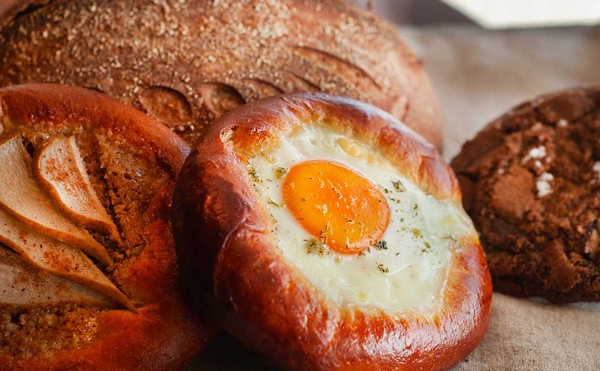The move comes after a Monday Metro Times article pointed out that members of the Thai, Southeast Asian, and LGBT communities found the name offensive, and called on Katoi to change it.
Three straight white people in Detroit in 2017 profiting and earning hip points while using a term for an oppressed, marginalized Thai transgender group is what many find to be an egregious case of cultural appropriation.
The term “kathoey” (a more common spelling than katoi) is also considered derogatory and offensive in most contexts in Thailand, though the transgender community there appears to be in the process of reclaiming it.
For our previous piece, we spoke with a trans rights activist in Thailand who identifies as a kathoey, people in Detroit’s southeast Asian community, transgender people, Thai-Americans, and LGBT people and advocates locally and around the nation. They say the use of the term in this context is not OK.
While there’s no perfect analogy, our sources likened it to a Thai person opening a gastropub in Bangkok and naming it after an English homophobic or transphobic slur.
Until last weekend, Katoi’s ownership had brushed off those concerns and refused to change the name. After Metro Times called the restaurant for comment on Saturday, its owners sent a statement via a PR rep that said that the restaurant would it.
Owner and chef Brad Greenhill refused to speak on the topic when reached by phone on Saturday.
However, Noura – a genderqueer person who had previously had no success getting a meeting with Katoi's owners – was able to meet with the owner after the Metro Times called on Saturday.
They (Noura uses gender-neutral-pronouns) told Metro Times on Monday that they met with general manager Courtney Henriette, and the meeting went well. Katoi then told the Free Press on Wednesday that it is changing it's name to Takoi.
“We did not know it was offensive," Greenhill told the Freep. "We worked from a literal translation of it, which was 'third gender, third profile.' The history of the term coming about in the '60s was a way for people to identify and deviate from dominant sexual norms. That’s what we were working under. The idea that it was a slur, we were unaware of.”
While it's commendable that Katoi changed its name to Takoi and apologized, Greenhill's account contradicts the account of multiple sources who tell Metro Times that they had approached or informed Katoi's ownership of the name and its meaning, and requested it be changed.
Among them is Peggy Gwi-seok Hong, a Korean-American adult member of the Detroit Asian Youth project. She says she approached Katoi's owners about a year ago and asked that they change their name. She told Metro Times last week she was "dismayed and frustrated" that the restaurant hadn't done so. Hong even co-authored an article critical of the restaurant's name earlier this year, which is evidence that Katoi knew of the concerns.
Regardless of whether it was an honest mistake, there's increasing frustration with the "I didn't know defense" when it comes to culturally insensitive restaurants. Some of that was expressed last month by members of New York City's historically Black Crown Heights neighborhood. They were upset that the owner of a new "Instagram-able" restaurant featured a fake bullet-hole riddled wall and served a 40-ounce of Rose in a brown paper bag that its owner billed as a fun "shout out" to the neighborhood. The owner apologized and said her "intention was misunderstood."
For those who missed our last article, the kathoey live in Thailand and southeast Asia and were — historically — a third gender of which there’s no Western equivalent, though it roughly translates to “ladyboy.” Sources say it’s a fluid term in modern times that covers Thailand’s transgender and gay communities.
Robert Blackmon, who heads the Los Angeles-based LGBTI advocacy group Alturi, explains that in pre-colonial times, kathoeys were revered and considered mystics. Then the white Europeans with their binary sexuality invaded and took over. Suddenly, kathoeys went from mystics to deviants, were quickly marginalized, and the term became an insult.
In modern Thailand, transgender people are accepted in pop culture, but the nation’s reputation as a “gay paradise” because the state doesn’t kill or outlaw LGBT people is an exaggeration. These days Thai transgender people can live their lives in the open but don’t have the same rights as non-trans people, and are expected to stay in the entertainment or beauty industries.
As for Takoi:
"Moving forward, the word Katoi will officially be retired in both logo and print form, but the spirit, individuality, and self-expression it inspired will live on," the owners' statement to the Freep reads. "Takoi, as defined by the Urban Dictionary, is the awkward moment of interesting dance that we all do when attempting to pass another on the street. More than just a scrabble shift in letters, this pivotal moment of engagement that is Takoi describes a moment shared between strangers."







